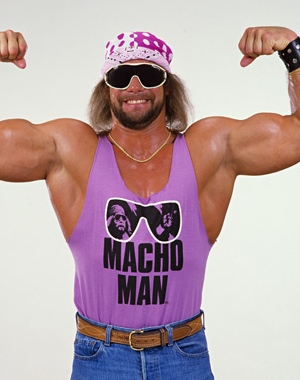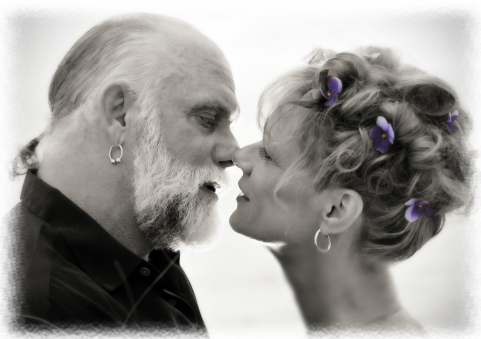|
|---|
Tuesday, March 23, 2010

When I first saw the trailer to We Live in Public several months ago, I was anxious to see the film. It had all the ingredients, a documentary, about the Internet, about a pioneer of the Internet, a madman, perhaps a genius, or just someone exceptionally bright with a leaning toward experimentation, psychology and human behavior.
The documentary is fairly straightforward. It is about the life of Josh Harris, dubbed the "Warhol of the Web," who in the early nineties founded a company called Jupiter. Jupiter turned out to be a cash cow precisely because it was an early adopter of using Internet technology to collect personal data. Harris was also involved in selling online chat software to Prodigy, the early competitor of AOL. With his millions of dot com dollars, Harris founded another company called Pseudo.com, which marketed itself as an Internet television network.
I don't remember Pseudo.com, but according to the documentary it was a promising startup. Think MTV for the web. With dozens of web channels, catering to young audiences, Pseudo attempted to leverage itself against major television networks. Harris believed that this type of technology, TV on the web, would overtake ABC, NBC, CBS. He was an ardent believer, almost to the point of delusion, in any project he started.
Pseudo did fairly well for a time, and its stock market value increased. But Harris's public persona was giving the company a bad name. Harris was what you call an eccentric (he dressed up in a clown suit as his alter ego Luuvy).
After Harris split with Pseudo, he went on to conduct two big experiments with surveillance technology and the Internet, funded by his millions of dollars. He was estimated at having over 80 million dollars during the dot com era.
Harris's business acumen is questionable, and an interesting subject in relation to this documentary. He had visionary insight into the future of the web. He was obsessed with video technology, and perhaps the only snag was that the development of video technology for the web had not matured to point where it's at today. But he staged his projects after Pseudo.com, not as businesses, but as social experiments. He was fascinated with the effects of technology on people, and that's why this documentary offers a provocative reflection of our times.
In his first experiment, he funded and architected the "Quiet" project, a social experiment of Orwellian proportions that involved over a hundred people living together in an underground bunker in New York City. Harris fed them, entertained them, gave them free drinks and created a 24 hour party atmosphere. The only tradeoff was their privacy--Harris recorded his subjects with hundreds of video cameras. Each person had a pod where they slept, with a television attached to their bunk bed that allowed them to watch each other, eating, sleeping, shitting, having sex, etc.
At one point in the movie, Harris says that Andy Warhol was wrong about his statement, "In the future, everyone will have 15 minutes of fame." Harris says, "Everyone will have 15 minutes of fame every day."
Harris's second experiment was on himself and his new girlfriend. His obsession with surveillance is taken to the obvious extreme when he decides to record every minute of his life by rigging his apartment with 70 surveillance cameras. The video was streamed to the web where users could comment in a chat box beside the video in real-time. Often Harris and his girlfriend communicated with the chat room, and they developed bonds to the anonymous users who watched their most intimate activities.
I couldn't help but think of how Harris's experiments with web technology have actually become very similar to how we live now. While it's obvious we're not being filmed in our bedrooms, with our every action streamed to the web, the immense growth of social media in the last five years has ushered in a way of life that carries the same implications as Harris's experiments.
Twitter is basically a technology that effects Harris's experiments on a realistic, practical level. Real-time communication through Twitter implicates us in a public virtual life. We may be anonymous on Twitter, but on Facebook people know our names, and often much more than that. Increasingly, our lives are being uploaded on the web in one form or another. We begin to feel attached to the manufacturing and sustaining of our web identities and personas. This often comes at the cost of creating a life for ourselves offline, taking walks, having conversations, riding the bike, or just being away from a laptop or smartphone.
Suffice it to say that the results of Harris's two experiments were not happy endings. The "Quiet" project eventually got raided by the police, not to mention the tensions that were building inside previous to the raid. And his relationship with his girlfriend ended in bitterness and loathing, on the web for all to see. Shortly after he stopped the project entirely.
I am the poster child for the Internet's obsession with social media. My life has changed dramatically since I began using social media . . .
I can tell you, it hasn't always been this way. I remember when I didn't even have Internet at home. I did everything from a computer at my job. But since then I've quit my job and invested in the website Escape into Life. I'm constantly promoting the site on Twitter and the production behind the site, and the development planning and coordination, requires me to be on the Internet all the time. Or does it?
I can't imagine waking up in the morning and not immediately checking my email. The web has so absorbed my daily life that I must break routinely during the day to leave the house. But when I come back, I return to the online world, tweeting, emailing, blogging. It's scary how narrow my life has become as a result of my regular use of the web.
The Blog of Innocence will tell you many private things about myself. My last post is especially revealing. I am living in public through my blog. Certain things about this worries me, such as future sponsors for Escape into Life. If they see my life laid out here, then maybe they won't want to sponsor me. My past is ugly, and I don't shy away from talking about it.
I exult in the freedom to publish my thoughts. Technology has given me one of the greatest gifts as a writer, a platform to stage my writings. Audiences on the web are fickle, which means we become obsessed with our standing, how many views we receive per day, how much traffic, how many fans or followers. As we upload, post, and publish more of our lives on the web, we become more attached to the medium we're using to advertise ourselves.
In a short article in the latest issue of Wired that talks about the relationship between humans and technology, Clive Thompson writes:
These days, though, there's a big debate between folks who love our modern, digitally enhanced lifestyle and those who are unsettled by it . . . People who are thrilled by personal technology are the ones who have optimized their process--they know how and when to rely on machine intelligence. They've tweaked their Facebook settings, micro-configured their RSS feeds, trained up the AI recommendations they get from Apple's Genius or TiVo.And crucially, they also know when to step away from the screen and ignore the clamor of online distractions. The upshot is that they feel smarter, more focused, and more capable. In contrast, those who feel intimidated by online life haven't hit that sweet spot. They feel the Internet is making them harried and--as Nicholas Carr suggested in The Atlantic--"stupid."
Thompson reduces our relationship to technology to an "optimization" process, but I feel it's fairly more complicated than that. There are staggering numbers that show how much our online lives have increased in the last five years.
Just to give you an idea of how many people are on the web, here are a some statistics I picked up from "The State of the Internet":
1.73 billion Internet users worldwide (Sept. 2009)234 million websites (Dec. 2009)126 million blogs27.3 million tweets per day (Nov. 2009)400 million people on Facebook4 billion photos hosted on Flickr1 billion videos served by YouTube in one day182 videos per month that the average Internet user watches in a month (USA)
Optimization is not going to change the fact that we are living larger chunks of our lives on the web. After awhile, virtual life begins to replace lived life, and at the younger ages, you can already see this happening. My younger sister, for example, keeps her iPhone at her side at all times and she's constantly checking it.
I truly enjoy the networks I participate in and the networks I support. I believe Escape into Life is doing a good thing for artists and writers. But my online life and my offline life are virtually indistinguishable at this point.
We may lament over these losses of freedom, but what is the alternative? On a basic level, I can restructure my life so that it incorporates more aspects of living beside online communication and work. But here is what I'm afraid has happened. When I turn away from the online world, and look to what is left for me, I see a person who is isolated, with few ties to his family, no girlfriend, and little social interaction. This is the plight of the modern individual.
There is a gulf of emptiness waiting for us on the other side. Perhaps that's why we cling to technology and unconsciously allow ourselves to become so wrapped up in it. We're alone. Living online has temporarily made us forget that we're alone, and therein lies its elusive promise, to be connected, to be influential, to be heard.
Labels: Josh Harris, We Live in Public
0 Comments:
Subscribe to:
Post Comments (Atom)














